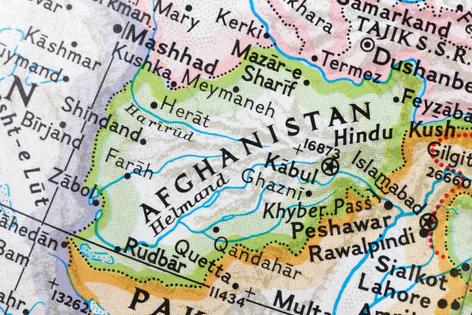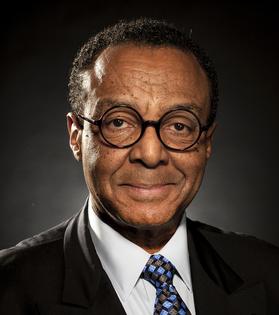President Biden’s Afghan Pullout Looked Good — Until It Didn’t
In the lead-up to Kabul’s fall, President Joe Biden’s most memorable quote appears to be his answer on July 8 to a reporter’s question about an assessment from the intelligence community that Afghanistan’s government teetered on the brink of collapse.
“That is not true,” the commander in chief insisted. “They did not reach that conclusion. … There is going to be no circumstance where you see people lifted off the roof of an embassy. … The likelihood that you’re going to see the Taliban overrunning everything and owning the whole country is highly unlikely.”
The Taliban obviously had other ideas. On Sunday they rolled into Kabul with surprising ease to topple the Afghan government, sending thousands of desperate civilians, many of whom had worked with our military, scrambling to the airport.
Biden’s remark about helicopters on the embassy roof was a reference to this country’s humiliating scramble to get out of Vietnam in 1975. A few weeks later, news media were running photos of that Saigon withdrawal with images of an American Chinook helicopter hovering over our embassy in Kabul during another disastrous withdrawal.
Now the familiar rituals of recriminations and finger-pointing begin. After 20 years and two presidents from each party, there are plenty of targets.
But, as difficult as the mission to end America’s involvement in Afghanistan has been, it is Biden who gets stuck with the blame for its chaotic execution.
In his televised statement, a day earlier, Biden tried to shift blame to his predecessor Donald Trump, who forged an agreement with the Taliban to withdraw by May 1. Biden pushed that back to coincide with the anniversary of the Sept. 11 attacks. But since the Taliban wasn’t honoring the agreement, Biden wasn’t particularly obligated either.
Even if the U.S. had broken the deal, it would not necessarily mean we would need to send more troops to join the roughly 2,500 American military “advisors” already in the country. We might have continued the existing state of affairs by using air cover to contain Taliban advances before they invaded the cities.
But, after 20 years of war, Biden was too impatient for that. In a sentiment that undoubtedly reflects a strong majority of Americans, he said, “One more year, or five more years, of U.S. military presence would not have made a difference if the Afghan military cannot or will not hold its own country.”
Indeed, we have heard similar sentiments from Presidents George W. Bush, Barack Obama and Donald Trump, each of whom promised to protect democracy without “nation-building,” even as they tried to do both in Iraq and Afghanistan.
In Iraq that policy appears to have had more success. The U.S. still has about 2,500 troops in Iraq, helping local forces contend with what remains of the Islamic State group.
Yet, in Afghanistan, even as American jets still were attacking Taliban positions in July, Biden continued his plans to pull out of that country. Some observers have questioned, with good reason, why Biden stuck with his plans to pull out of Afghanistan, while leaving a similarly sized force in Iraq.
As a draftee in the final years of long, drawn-out Vietnam War, I appreciate the pressures rising in both parties to end this country’s “neocolonialist” and “neoconservative” impulses that too often have tried to promote democracy in countries that weren’t ready for it.
But our missions in Iraq and Afghanistan were directly tied to perceived threats against our country, the same reason we currently have more than 170,000 troops in 170 countries. That’s one reason why, even though I was drafted in the Vietnam call-up, I wound up working with our NATO allies in Germany.
Occasionally you hear political candidates in both parties complain, as candidate Trump did, about “endless wars” and that we have too many troops in Europe, Asia and elsewhere around the globe. Yet, there were more troops in the Middle East after Trump became president than before his ascent to the Oval Office.
Tens of thousands of American troops remain deployed in such war zones as Somalia and — even still — Syria, plus such long-allied countries such as Germany, South Korea and Japan.
In time, will our Afghanistan pullout look like a sudden abandonment of our commitment to stability? Could it even slip back into providing a new safe haven for al-Qaida or other terrorist groups?
I’d like to think the new Taliban leadership is smarter than that, but I wouldn’t bank on it.
========
(E-mail Clarence Page at cpage@chicagotribune.com.)
©2021 Clarence Page. Distributed by Tribune Content Agency, LLC.
(c) 2021 CLARENCE PAGE DISTRIBUTED BY TRIBUNE MEDIA SERVICES, INC.










